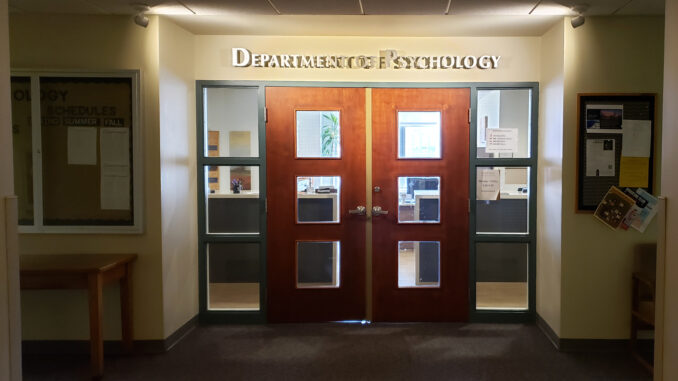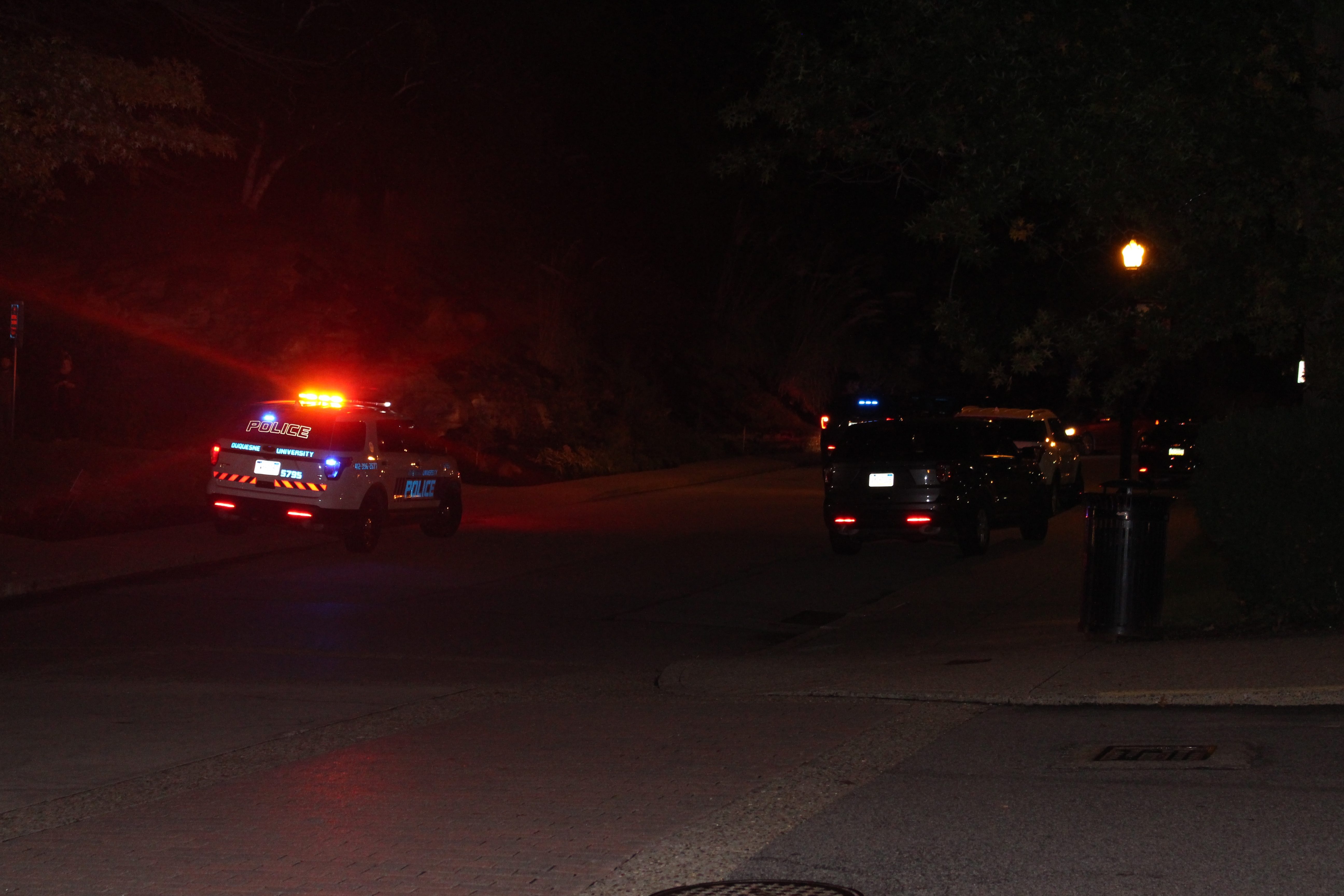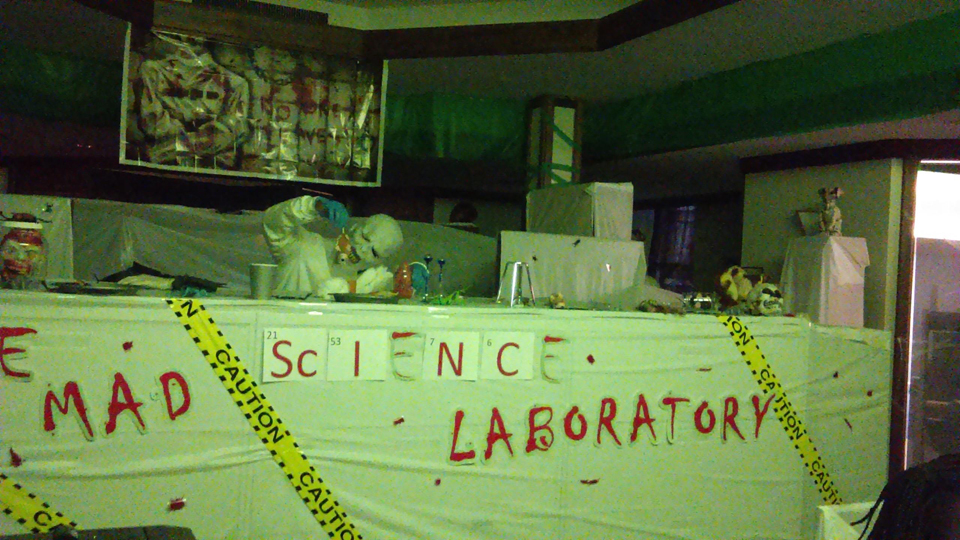
Zoe Stratos | opinions editor
Sept. 9, 2021
Duquesne University officials and psychology professor Derek Hook said this week that allegations that he promoted the idea of white people committing suicide in a presentation were false and that his comments posted to social media were abbreviated and taken out of context.
In a virtual lecture in June to Baltimore-based American Association for Psychoanalysis in Clinical Social Work (AAPCSW), Hook quoted controversial South African professor Terblanche Delport, who has said that the majority of white people in his country only engage with Black people in subservient positions.
A snippet of Hook’s comments — as part of the lecture series “Deconstructing Whiteness Toward and Anti-Racist Clinical Practice” — were posted to Twitter and other social media platforms.
The 90-second portion of the lecture included a slide that read: “White people should commit suicide as an ethical act.”
However, the post failed to include any other context, university officials said.
“While some of the content in the recording certainly contained troubling elements if taken alone, the full discussion only references the work of another person… and the extreme proposition in the context of post-Apartheid South Africa,” Duquesne officials said in a Sept. 2 statement.
“My lecture was focused on how white South Africans faced — and continue to face — a series of social and political transformations in post-apartheid South Africa,” Hook said. “This is a country where white South Africans had for many years been assured cultural prominence and security, and that is no longer the case,” Hook said.
The abbreviated clip of the lecture, posted to the Twitter account @MythinformedMKE on Aug. 25, caught the attention of news outlets like Fox News, as well as more than 250,000 views.
In it, Hook shares slides in which he quotes Delport from a 2016 lecture.
The first slide shown in the video was titled “White people should commit suicide as an ethical act.”
The slide goes on to quote Delport: “The reality [in South Africa] is that most white people spend their whole lives only engaging black people in subservient positions…… My question is then how can a person not be racist if that’s the way they live their lives? The only way then for white people to become part of Africa is to not exist as white people anymore…. .'”
The next slide continues quoting Delport:
“….If the goal is to dismantle white supremacy, and white supremacy is white culture…. then the goal has to be to dismantle white culture and ultimately white people themselves. The total integration into Africa by white people will also automatically then mean the death of white people, as white as a concept would not exist anymore “
After reading Delport’s quotes, Hook told the audience that the philosophy Delport was offering was a “crazy gambit” and a “dramatization.”
But, Hook, a scholar and practitioner of psychoanalysis in respect to racism and South Africa, also said “I want to suggest that, psychoanalytically, we could even make the argument that there was something ethical in Delport’s statements.”
Hook explained in an emailed response to the Duke there is a difference in how ethics is defined in psycholanalysis, as opposed to the traditional meaning. In this case, he explained, it pertains to the “prospect of subjective change or individual transformation that comes from clinical work.”
In the video posted online, Hook said, “I think that Delport took his white audience to the threshold of a type of symbolic extinction … he took them to a proposed end of whiteness,” adding that Delport offered his white audience the opportunity to contemplate “the castration of whiteness.”
Comments on the Twitter video were mostly negative, condemning Duquesne for employing a professor who spoke about suicide in such a way.
But Hook said on Wednesday he was not advocating suicide, but instead wanted to use controversial examples in his lecture to show the changing cultural and political environment of South Africa.
According to Hook, he came across Delport during a conference at his alma mater, University of the Witwatersrand, in South Africa and chose to include him as part of his lecture.
“There has been, and continues to be, much anxiety about how white identities might be re-negotiated in a South Africa that is increasingly an overtly African country,” he said. “What the news coverage of this event has thus far avoided, is that my argument suggests that such moments of transformation are also moments of opportunity, where positive, reconsidered and courageous types of identity can emerge.”
In the online statement, the university called the attributions to Hook “ridiculous and reckless,” adding that he was not advocating for Delport’s philosophy.
“We immediately viewed the posts, the video and other coverage. In our assessment, the video was being presented inaccurately,” said Gabe Welsch, vice president of marketing and communications at Duquesne. “We then sought clarification from Professor Hook about the incident.”
The statement went on to say that Hook did not advocate for taking extreme measures, and does not advocate for violence. Moreover, he was attempting in his lecture to “understand how extreme thought is developed.”
More reactions to the video came as 1Hood Media’s podcast, ON TiLT: The State of Black Mental Health and Policing in America, discussed the angles of the provocations on Sept. 2.
The podcast’s hosts, Julius Boatwright and Dannielle Brown, began the podcast by watching the video for the first time — Brown claiming there’s “too many layers to this.”
After a few minutes of discussion, the two hosts contemplated the deeper meaning of the presentation, both being mental health advocates and part of the Black community themselves, ultimately deciding the “package” of tying an anti-racist discussion with suicide isn’t appropriate, but the discussion of acts of anti-racism, in general, is.
“I don’t agree with the package, but this is a topic that is an eye opener and worth discussion over. There are certain segments to it that can be take-away, that can be also used for the betterment,” Brown said. “But the package: we live in a world where we are soundbites. We will take something and run with it. That piece, there needs to be accountability to it.”
She then added that she believes there should be action taken.
“The bottom line is, there’s a level of responsibility that these universities have to consider when it comes to bettering your professors and what our students are taught and can take home — cause this could go drastically wrong.”
Emails have been sent to the university in response to the video, and the university is taking time to answer each one.
“The university has received some concerned email and calls from constituents and has responded to them, sharing accurate details, including a piece of independent reporting done by Reuters, the respected international news agency. Their independent research provided further clarification and detail that supported the fact that Professor Hook’s lecture was misrepresented,” Welsch said.
Duquesne also promotes the Center for Student Wellbeing for support options and counseling services. As an associate psychology professor, Hook advocates for these discussions as well.
“In clinical work, the issue of suicide is one that needs always to be kept in mind and taken very seriously, for obvious reasons. Sensitivity is obviously important in such contexts. Because it is such an important topic, it is normal that it would emerge in a professional meeting of psychoanalytic social workers, who need to think about — and anticipate — the reality of suicide in those they work with every day,” Hook said.
“In such a professional context, it is important to discuss and explore what might act as a precursor to suicide, and to enter into such conversations with professional colleagues in order to prevent it.”




